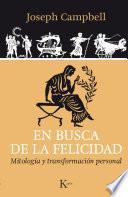

Or perhaps the mentor is an object, such as a map. They might literally give weapons to prepare for the trials ahead, like Q in the James Bond series. But mentors take many forms, from witches to hermits and suburban karate instructors. Wise old wizards seem to like being mentors. The mentor provides practical training, profound wisdom, a kick up the posterior, or something abstract like grit and self-confidence. They're much too inexperienced at this point and we don't want them to do a fabulous belly-flop off the cliff.Įnter the mentor: someone who helps the Hero, so that they don't make a total fool of themselves (or get themselves killed). The Hero's decided to go on the adventure - but they’re not ready to spread their wings yet. In which the Hero acquires a personal trainer. He’s reluctant, given that he has no trainer and is incredibly out of shape. Rocky says, “Thanks, but no thanks,” to Creed’s invitation. It’s only when he discovers that his aunt and uncle have been killed by stormtroopers that he changes his mind. In Star Wars, for instance, Luke Skywalker initially refuses to join Obi-Wan on his mission to rescue the princess. It’s risky and there are perils - like spiders, trolls, or perhaps a creepy uncle waiting back at Pride Rock. The Hero might first refuse the call to action.

Now they’re all set to be whisked off to defeat evil, right? Great, so the Hero’s received their summons. Intrigued by the nickname, “The Italian Stallion,” he rings Rocky up. The only question: will he rise to the challenge? 🎬 Rocky: Call to Adventure:Īpollo Creed, the undisputed World Heavyweight Champion, decides to make a big fight interesting by giving a no-name a chance to challenge him. The stakes of the adventure and the Hero's goals become clear. upon discovering a lost alien in the tool shed. Be casually strolling when some passing phenomenon catches the wandering eye and lures one away from the frequented paths of man, i.e.Dorothy when she’s swept up in a tornado in The Wizard of Oz, Stumble upon the adventure as a result of a mere blunder, i.e.Odysseus setting off on his ship in The Odyssey, Be sent abroad by a benign or malignant agent, i.e.Decide to go forth of their own volition, i.e.This catalyst can take many forms, as Campbell points out in Hero with a Thousand Faces. In this stage, they are generally confronted with a problem or challenge they can't ignore. The call to adventure is all about booting the Hero out of their comfort zone. Rocky Balboa is introduced as a mediocre boxer and loan collector - just doing his best to live day-to-day in a poor part of Philadelphia. Importantly, it lets readers identify with the Hero as a “normal” person in a “normal” setting, before the journey begins. It’s up to this opening leg to set the stage, introducing the Hero to readers. Before our Hero discovers a strange new world, we must first understand the status quo: their ordinary, mundane reality. To show you how it can be used outside of your average sword-and-sorcery books, we've adopted the 1976 film Rocky as an example in each step. The 12 steps of the hero's journey are.īelieve it or not, this story structure also applies across mediums and genres (and also works when your protagonist is an anti-hero!). The Hero's Journey is a model for both plot points and character development: as the Hero traverses the world, they'll undergo inner and outer transformation at each stage of the journey. Tell us about your book, and we'll give you a writing playlist Looking for the perfect playlist to get you in the writing mood? Tell us about your book, and we'll give you a made-for-you writing playlist. But when you’re struggling to figure out what should happen next, it can act as a narrative arc guide to suggest what the next milestone should be. You can instead think of it as a map: you can stray from the set path whenever you like. But keep in mind that you don't necessarily need to follow it beat by beat.

The Hero's Journey has its fingerprints in everything from The Lion King and horror novels to Star Wars and Arrival. (This is the version that we’ll be dissecting later in this post.) In 2007, screenwriter Christopher Vogler refined Campbell’s original structure in his book, The Writer’s Journey. In it, Vogler expanded upon Campbell’s three phases, defining 12 stages that make it up.


 0 kommentar(er)
0 kommentar(er)
